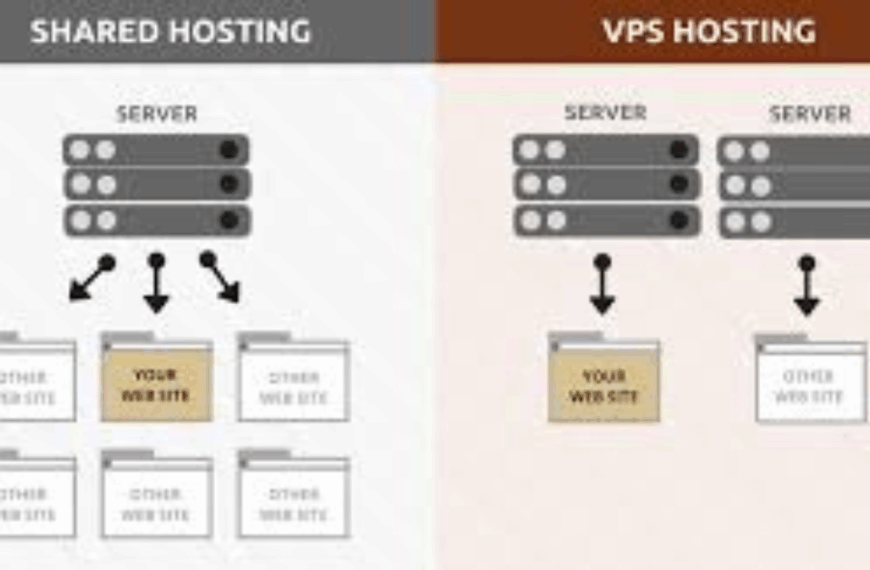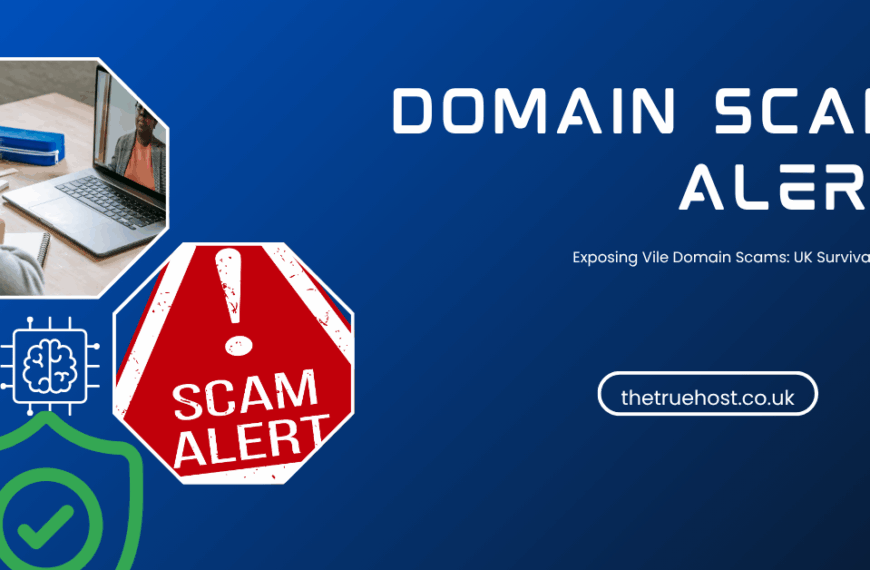Last updated on November 23rd, 2025 at 08:04 pm

Looking to improve domain authority for your UK website? You’re not alone. Every day, countless website owners search for ways to boost their domain authority, and for good reason—it’s one of the most reliable indicators of your site’s potential to rank well in search results.
Ready to boost your domain authority? Get expert SEO hosting solutions at TrueHost UK and watch your rankings soar with our UK-focused hosting services.
Here’s the thing: domain authority isn’t just another vanity metric. It’s your website’s report card, telling you—and Google—how trustworthy and authoritative your site really is.
Whether you’re a blogger in Manchester, a small business owner in Birmingham, or running an e-commerce site in London, understanding how to improve domain authority can make or break your online success.
What Exactly Is Domain Authority?

Think of domain authority as your website’s credit score. Just like banks use credit scores to determine your trustworthiness, search engines use domain authority to predict how well your website will rank on search engine results pages (SERPs).
Domain Authority (DA) is a metric developed by Moz that scores websites from 1 to 100. The higher your score, the more likely you are to rank well in search results. It’s calculated using over 40 factors, including linking root domains and the number of total links.
But here’s what gets interesting—domain authority isn’t static. It fluctuates based on your website’s performance compared to other sites. You might improve your domain authority by 5 points, but if your competitors improve theirs by 10 points, your relative position could actually drop.
Why Domain Authority Matters for UK Businesses
You know what’s frustrating? Watching your competitors outrank you when you know your content is better. That’s often where domain authority comes into play.
Higher domain authority brings several benefits:
- Better search engine rankings
- Increased organic traffic
- Enhanced credibility with your audience
- More opportunities for quality backlinks
- Improved conversion rates
For UK businesses, this matters even more. With Brexit changing the digital landscape and increasing competition in local markets, having a strong domain authority can be the difference between thriving and merely surviving online.
Read Also: 9 Domain Authority Checkers That Give You an Edge
8 Strategic Ways to Improve Domain Authority

1. Build High-Quality Backlinks That Actually Matter
Let’s be honest—not all backlinks are created equal. Getting a link from your mate’s blog won’t move the needle much. But earning a backlink from BBC, The Guardian, or a respected industry publication? That’s pure gold.
Focus on these link-building strategies:
- Guest posting on reputable UK websites
- Creating shareable infographics and research studies
- Building relationships with journalists and bloggers
- Participating in industry forums and discussions
The key is quality over quantity. One high-authority backlink from a trusted UK source is worth more than dozens of low-quality links from questionable sites.
Remember, Google’s algorithm has become incredibly sophisticated at identifying natural versus manipulative link patterns. Stick to earning links naturally through valuable content and genuine relationships.
2. Create Authority-Building Content That Resonates

Content is still king, but context is queen. Your content needs to do more than just exist—it needs to solve real problems for your audience.
Here’s what works:
- Long-form, comprehensive guides (like this one!)
- Original research and industry insights
- Case studies featuring UK businesses
- Interactive tools and calculators
The sweet spot for authority-building content is typically 1,500-3,000 words. This gives you enough space to cover topics thoroughly while demonstrating your expertise.
Don’t just write for search engines though. Write for humans first. Google’s algorithms are getting better at understanding user intent and engagement signals. If people love your content, Google will too.
3. Master Your Internal Linking Structure
Internal linking is like the nervous system of your website—it helps search engines understand how your content relates to each other. Yet most UK businesses completely mess this up.
Best practices for internal linking:
- Use descriptive anchor text (not just “click here”)
- Link to relevant, related content
- Create topic clusters around your main keywords
- Ensure every page is reachable within 3 clicks
A well-structured internal linking system helps distribute link equity throughout your site, boosting the authority of individual pages and improving user experience.
4. Fix Technical SEO Issues That Kill Domain Authority
Technical SEO might sound boring, but it’s the foundation everything else builds on. Think of it as the plumbing of your website—when it’s working, nobody notices, but when it’s broken, everything goes to hell.
Critical technical factors to address:
| Factor | Impact on DA | Common Issues |
|---|---|---|
| Page Speed | High | Slow loading times |
| Mobile Responsiveness | High | Poor mobile experience |
| SSL Certificate | Medium | Unsecured connections |
| Crawl Errors | Medium | Broken links, 404s |
| XML Sitemap | Low | Missing or outdated |
Use tools like Google PageSpeed Insights to identify and fix speed issues. For UK businesses, this is especially important since mobile usage continues to dominate.
5. Remove Toxic Backlinks That Damage Your Authority
Here’s something that might surprise you: bad backlinks can actually hurt your domain authority. Google’s algorithm is smart enough to penalize sites with spammy or low-quality link profiles.
Signs of toxic backlinks:
- Links from obviously spammy sites
- Excessive exact-match anchor text
- Links from irrelevant industries
- Paid links that violate Google’s guidelines
Use tools like Google Search Console or Ahrefs to audit your backlink profile regularly. When you find toxic links, try reaching out to the site owner first. If that doesn’t work, use Google’s Disavow Tool.
6. Enhance User Experience to Boost Engagement Signals

Google pays attention to how users interact with your site. If people bounce immediately or spend very little time on your pages, it sends negative signals about your content quality.
Key UX factors that affect domain authority:
- Bounce rate (aim for under 70%)
- Time on page (longer is generally better)
- Pages per session (higher indicates engagement)
- Click-through rates from search results
The good news? Improving user experience often improves your domain authority naturally. When people love your site, they’re more likely to share it, link to it, and recommend it to others.
7. Build Strategic Partnerships Within the UK Market
Networking isn’t just for in-person events anymore. Building relationships with other UK businesses, bloggers, and industry leaders can lead to natural link-building opportunities.
Effective partnership strategies:
- Collaborate on research projects
- Co-host webinars or events
- Exchange guest posts with complementary businesses
- Participate in industry roundups
The key is to focus on mutually beneficial relationships rather than one-sided link requests. When you genuinely help others, they’re more likely to help you in return.
8. Establish Consistent Brand Presence Across All Channels
Your domain authority isn’t just about your website—it’s about your entire online presence. Consistency across all platforms signals to search engines that you’re a legitimate, trustworthy business.
Build presence through:
- Active social media profiles
- Consistent NAP (Name, Address, Phone) citations
- Regular content publishing schedule
- Thought leadership in your industry
For UK businesses, this includes claiming your Google My Business listing and ensuring your information is consistent across UK-specific directories like Yell.com and Thomson Local.
How to Measure Your Domain Authority Progress
Looking for reliable hosting to support your domain authority improvements? Discover TrueHost UK’s SEO- SEO tools designed specifically for UK businesses.
Measuring progress is crucial, but don’t obsess over daily fluctuations. Domain authority typically updates monthly, and meaningful changes take time to appear.
Key metrics to track:
- Domain Authority score (monthly)
- Organic traffic growth (weekly)
- Keyword rankings (weekly)
- Backlink quality and quantity (monthly)
- User engagement metrics (weekly)
Set up regular reporting using tools like Google Analytics, Search Console, and Moz’s Link Explorer. Track trends over time rather than focusing on day-to-day changes.
Common Mistakes That Hurt Domain Authority
Even well-intentioned UK business owners make mistakes that can harm their domain authority. Here are the most common ones:
Avoid these pitfalls:
- Buying low-quality backlinks
- Keyword stuffing your content
- Ignoring mobile optimization
- Neglecting page speed
- Creating thin, low-value content
Remember, there are no shortcuts to building legitimate domain authority. It takes consistent effort and patience, but the results are worth it.
When Will You See Results?
Let’s set realistic expectations. Domain authority improvements don’t happen overnight. Most UK businesses see noticeable improvements within 3-6 months of consistent effort.
Typical timeline:
- Month 1-2: Technical fixes and content creation
- Month 3-4: Initial link building and content promotion
- Month 5-6: Measurable improvements in DA and rankings
- Month 7+: Sustained growth and compound benefits
The key is consistency. Small, regular improvements compound over time to create significant results.
Taking Action
Now that you understand how to improve domain authority, it’s time to take action. Start with a comprehensive audit of your current situation, then prioritize the strategies that will have the biggest impact on your specific website.
Your action plan:
- Audit your current backlink profile
- Identify and fix technical SEO issues
- Create a content calendar for authority-building content
- Reach out to potential link partners
- Monitor your progress monthly
Remember, improving domain authority is a marathon, not a sprint. Focus on creating genuine value for your audience, and the metrics will follow naturally.
The digital landscape in the UK continues to evolve, but the fundamentals of building authority remain the same: create valuable content, earn quality links, and provide an excellent user experience. When you get these basics right, your domain authority—and your business—will thrive.
Ready to accelerate your domain authority growth? Get started with thetruehost.co.uk’s premium hosting services and give your website the technical foundation it needs to succeed.
Read Also: How to Buy a Website Name in the UK (Quick Guide)
Read Also: Understand Why Multimodal AI Could Skyrocket Your Online Success
 Domain Search
Domain Search Whois Lookup
Whois Lookup Domain Transfer
Domain Transfer All Domains
All Domains Web Hosting
Web Hosting Email Hosting
Email Hosting Reseller Hosting
Reseller Hosting Windows Hosting
Windows Hosting cPanel Hosting
cPanel Hosting VPS Hosting
VPS Hosting Managed VPS Hosting
Managed VPS Hosting Dedicated Server
Dedicated Server SSL Certificates
SSL Certificates All SSL
All SSL






